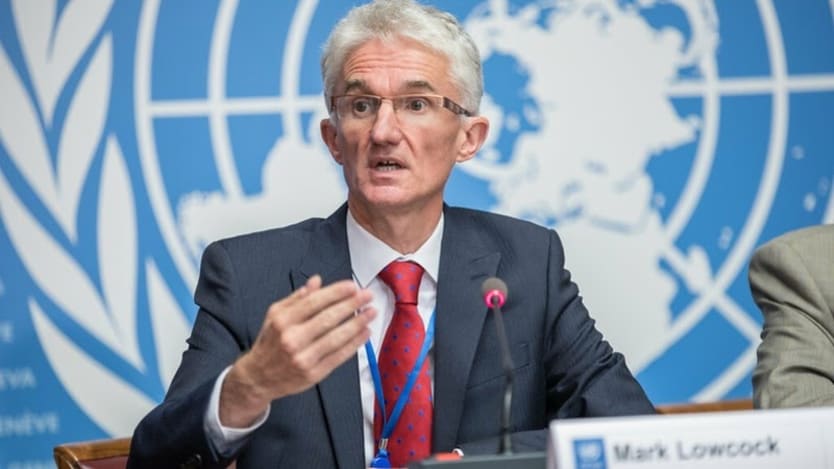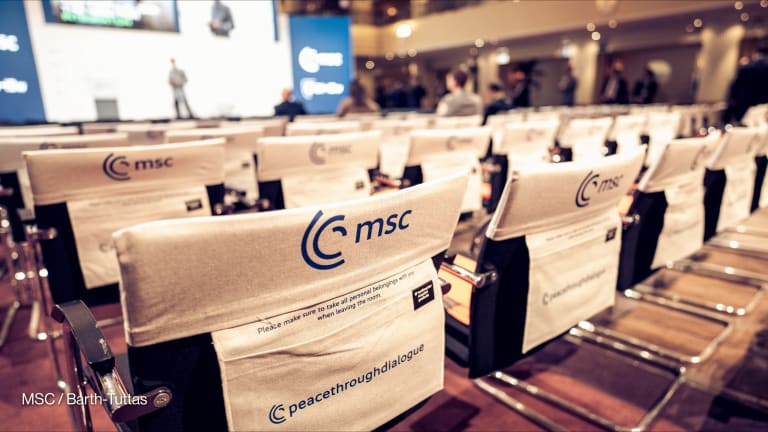
BRUSSELS — Military and humanitarian efforts in the Sahel will fail unless they are accompanied by long-term, grant-based development work, head of United Nations Office for the Coordination of Humanitarian Affairs, Mark Lowcock, said Wednesday.
In a week in which around 100 people were killed in an attack on a village in central Mali, Lowcock was in Brussels, Belgium, to meet European Union officials and speak at the European Council on Foreign Relations.
EU states meet on youth, Sahel, but ministers stay home
So few senior development ministers turned up to Thursday's meeting that key agenda items could not be passed.
“At the moment, most public policy efforts, both at the national and international levels, are treating symptoms rather than the causes of those symptoms,” he said in the speech. “That is a surefire recipe for failure.”
An area of mostly semi-arid grasslands, savannah and deserts roughly the size of the EU, the Sahel encompasses 135 million people in parts of Senegal, Mauritania, Mali, Burkina Faso, Niger, Nigeria, and Chad. There are 4.4 million people forcibly displaced by conflict and 10.45 million who are estimated to need emergency food assistance this year in the Sahel, according to the European Commission.
“Talk to people about Sahelian countries as investment opportunities, it is not what is top of the list for most investors.”
— Mark Lowcock, OCHA headThe EU is providing about €8 billion ($9 billion) in development assistance for Mali, Mauritania, Niger, Burkina Faso, and Chad from 2014 to 2020, in part through its Emergency Trust Fund for Africa. It is providing €152 million in humanitarian relief this year, as well as supporting the G5 Sahel Joint Force, which aims to improve security, counter extremist groups, and train local militaries.
Of all the areas that Lowcock follows he is most worried about the Sahel, he told Devex. In addition to humanitarian response plans being under-resourced — no plan across the Sahel last year was more than two-thirds funded — “the scale of response on the development side is not remotely adequate to the scale of the causes,” he said.
“It’s very good that there are EU programs on development and so on, but preponderantly the effort has been on the humanitarian and military side,” the former permanent secretary at U.K. development agency, Department for International Development, said.
“[The scale of the development response] needs to be much bigger, longer term. It’s not sensible to try to put specific numbers on it, but this is not a region which has been over-invested in, in developmental terms, over the last several decades. Other regions have attracted much more resources.”
Lowcock said the underlying problems to be addressed include: poverty, demographic growth, education, governance failures, and environmental stresses, made worse by climate change.
“A lot of what needs to be done can only be done through [grants] or very, very concessional resources,” he said.
European and American development agencies are increasingly using public money to try and stimulate private sector investment, including in least-developed countries.
Lowcock said the EU’s tools to promote private sector growth, such as guarantees from the EU budget to partially cover investors potential losses on projects in fragile states, are “very good … But realistically, private sector money is going to go to places where investors think they can make a return. That’s just how it works with private money. It’s not philanthropy. It’s looking for a return and when you travel to or talk to people about Sahelian countries as investment opportunities, it is not what is top of the list for most investors.”
At the same time, Lowcock recognized the private sector’s contribution to development, and welcomed the European Bank for Reconstruction and Development considering a move further south into Africa.
“I’m sure there is a role for the EBRD to play in North Africa, potentially in the Sahel as well,” Lowcock said. “But they also operate with the same sort of philosophy as private sector investors. The environment needs to be sufficiently conducive for there to be enough good quality investments for the EBRD … But I think it’s good that they are thinking of playing a stronger role in this region.”








